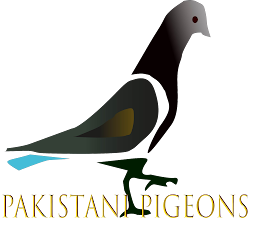Pigeons, often referred to as rock doves, are remarkable creatures that have captivated human interest for centuries. Found in cities, parks, and rural areas worldwide, pigeons are known for their unique characteristics, intelligence, and close association with human civilization. In this essay, we will delve into the world of pigeons, exploring their physical attributes, behaviors, historical significance, and their intricate relationship with humans.
Pigeons belong to the Columbidae family, which includes over 300 species. The most common species, the rock dove (Columba livia), has a distinct appearance with plump bodies, small heads, and short legs. They showcase a remarkable diversity of plumage, ranging from white and gray to various shades of brown and black. Pigeons are renowned for their ability to fly, with strong wings that enable them to maneuver effortlessly through the air, reaching speeds of up to 60 miles per hour.
One of the most intriguing aspects of pigeons is their navigational skills. They possess a remarkable ability to return to their roosting sites from vast distances, often referred to as "homing instinct." This unique attribute has been studied extensively and utilized by humans for centuries, particularly in the field of pigeon racing. Pigeon racing involves releasing pigeons from a specific location and timing their return to their respective lofts. These competitions showcase the remarkable navigational abilities of pigeons, as they utilize various environmental cues such as the Earth's magnetic field, visual landmarks, and even sense of smell to find their way back home.
Beyond their navigational skills, pigeons also exhibit complex social behaviors. They are highly gregarious creatures, often seen in flocks known as "flights" or "bands." Pigeons form strong pair bonds with their mates and engage in elaborate courtship rituals, which involve puffing up their chests, cooing, and displaying their colorful plumage. These rituals not only establish mating pairs but also serve as a form of communication within the flock.
Pigeons are known for their adaptability and their ability to thrive in urban environments. They have a long-standing association with human civilization, dating back thousands of years. Pigeons were first domesticated in ancient Mesopotamia and have since played a significant role in human history. They were utilized as messengers during ancient times, carrying important letters across vast distances. Pigeons were also used during wars to deliver messages, earning them the nickname "war pigeons" or "carrier pigeons."
In addition to their historical significance, pigeons have made substantial contributions to scientific research. Their cognitive abilities, particularly in the field of animal intelligence and behavior, have been a subject of study for many years. Pigeons have been trained to perform complex tasks and demonstrate impressive cognitive skills, including pattern recognition, memory, and problem-solving abilities. Their contributions to the field of psychology, particularly in the study of operant conditioning and behaviorism, have been invaluable.
While pigeons are often admired and cherished by many, they can also be seen as a nuisance in urban environments. Their droppings, which can accumulate in large quantities, may cause damage to buildings and pose health risks. Efforts to manage pigeon populations in cities have been implemented through various means, including the use of birth control measures and the installation of deterrents to discourage roosting.
In conclusion, pigeons are fascinating creatures with a rich history and a unique set of characteristics. Their navigational abilities, social behaviors, and close association with human civilization make them truly remarkable. Whether regarded as messengers, racing competitors, or subjects of scientific study, pigeons continue to captivate our curiosity and remind us of the intricate relationship between humans and the natural world.




0 Comments